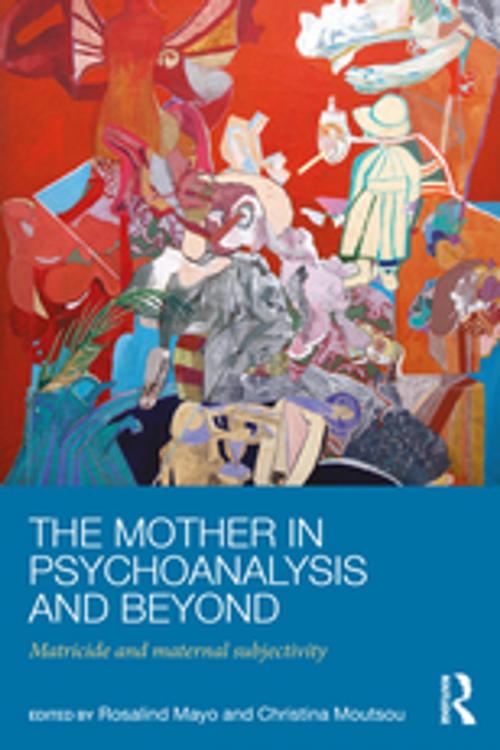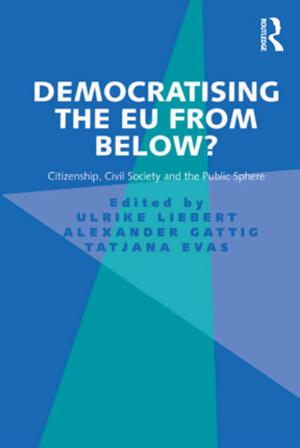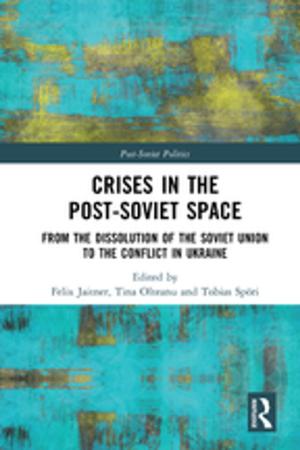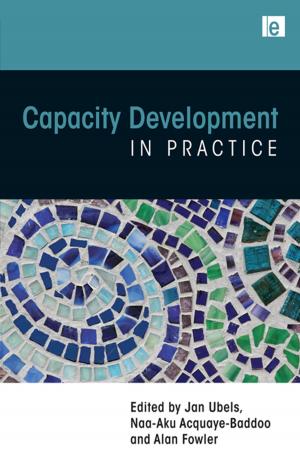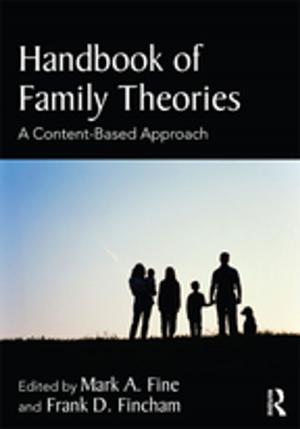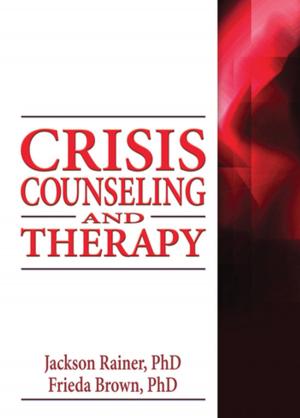The Mother in Psychoanalysis and Beyond
Matricide and Maternal Subjectivity
Nonfiction, Health & Well Being, Psychology, Psychoanalysis, Mental Health| Author: | ISBN: | 9781317503590 | |
| Publisher: | Taylor and Francis | Publication: | October 4, 2016 |
| Imprint: | Routledge | Language: | English |
| Author: | |
| ISBN: | 9781317503590 |
| Publisher: | Taylor and Francis |
| Publication: | October 4, 2016 |
| Imprint: | Routledge |
| Language: | English |
The question of what it means to be a mother is a very contentious topic in psychoanalysis and in wider society. The Mother in Psychoanalysis and Beyond explores our relationship to the maternal through psychoanalysis, philosophy, art and political and gender studies.
Over two years, a group of psychotherapists and members of the public met at the Philadelphia Association for a series of seminars on the Maternal. In the discussions that followed, a chasm opened up slowly and painfully between the idealised longings and fantasies we all share and the realities of maternal experiences: here were met the great silences of love, loss, longing, memories, desire, hatred and ambivalence. This book is the result of this bringing together in conversation and reflections of what so often seems unsayable about the Mother. It examines how issues of personal and gender identity are shaped by the ideals of separation from the mother, the fears and anxiety of merging with the mother, and how this has often led, in psychoanalysis and society, to holding mothers responsible for a variety of personal and social ills and problems in which maternal vulnerability is denied and silenced.
There are two main themes running throughout the book: Matricide and Maternal Subjectivity. On the theme of matricide, several contributors discuss the ways in which the discourse and narratives of the Mother have been silenced on a sociocultural level and within psychoanalysis and philosophy in favour of discourses that promote independence, autonomy, power and the avoidance and denial of our fundamental helplessness and vulnerability. On the theme of maternal subjectivity, several chapters look at the actual experience of mothering and/or our relationship to our mother, to highlight the ways in which the maternal is intimately connected with human subjectivity.
The Mother in Psychoanalysis and Beyond provides new and provocative thinking about the maternal and its place in various contemporary discourses. It will appeal to psychoanalysts, psychotherapists and psychologists of different schools, scholars and advanced students of art, gender studies, politics and philosophy as well as anyone interested in maternity studies and the relationship between the maternal and human subjectivity.
The question of what it means to be a mother is a very contentious topic in psychoanalysis and in wider society. The Mother in Psychoanalysis and Beyond explores our relationship to the maternal through psychoanalysis, philosophy, art and political and gender studies.
Over two years, a group of psychotherapists and members of the public met at the Philadelphia Association for a series of seminars on the Maternal. In the discussions that followed, a chasm opened up slowly and painfully between the idealised longings and fantasies we all share and the realities of maternal experiences: here were met the great silences of love, loss, longing, memories, desire, hatred and ambivalence. This book is the result of this bringing together in conversation and reflections of what so often seems unsayable about the Mother. It examines how issues of personal and gender identity are shaped by the ideals of separation from the mother, the fears and anxiety of merging with the mother, and how this has often led, in psychoanalysis and society, to holding mothers responsible for a variety of personal and social ills and problems in which maternal vulnerability is denied and silenced.
There are two main themes running throughout the book: Matricide and Maternal Subjectivity. On the theme of matricide, several contributors discuss the ways in which the discourse and narratives of the Mother have been silenced on a sociocultural level and within psychoanalysis and philosophy in favour of discourses that promote independence, autonomy, power and the avoidance and denial of our fundamental helplessness and vulnerability. On the theme of maternal subjectivity, several chapters look at the actual experience of mothering and/or our relationship to our mother, to highlight the ways in which the maternal is intimately connected with human subjectivity.
The Mother in Psychoanalysis and Beyond provides new and provocative thinking about the maternal and its place in various contemporary discourses. It will appeal to psychoanalysts, psychotherapists and psychologists of different schools, scholars and advanced students of art, gender studies, politics and philosophy as well as anyone interested in maternity studies and the relationship between the maternal and human subjectivity.
